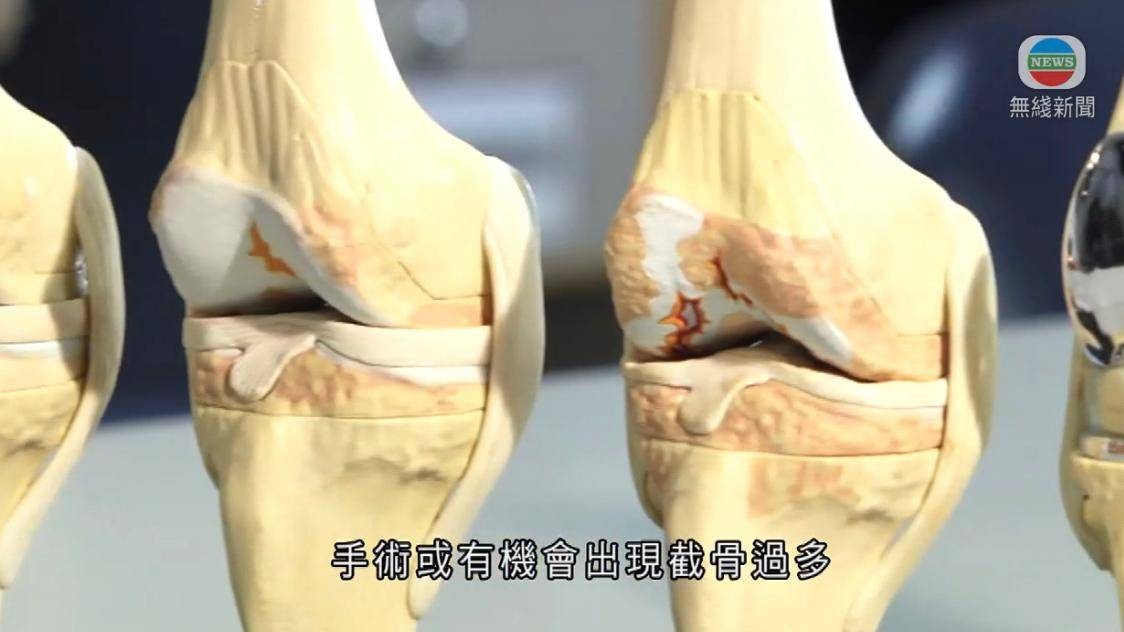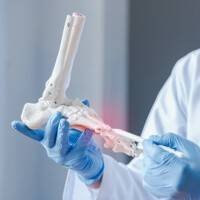
Many elderly individuals are affected by degenerative knee arthritis. As of last month, there were over 34,000 cases waiting for total joint replacement surgery in the Hospital Authority.
Surgeries may risk excessive osteotomy or misalignment. A private hospital has introduced a robotic arm system to assist with these procedures, adjusting artificial joints based on the patient's ligament flexibility.
Dr. Cheung Man Hong, an orthopedic consultant at Hong Kong Adventist Hospital, stated, "In knee surgery, apart from the bones, another very important structure is the soft tissues. Traditionally, we haven't paid much attention to soft tissues, or it has been difficult to assess their tightness. With this robotic arm, it has a real-time camera that monitors soft tissues immediately. During the surgery, we can perform objective and detailed analyses to determine the hardness or softness, and then decide how to proceed with cutting or the artificial implant."
In addition to knee joints, incorrect posture can lead to conditions like herniated discs or scoliosis, where traditional surgeries may result in larger incisions. This spinal robotic assisted surgical system incorporates artificial intelligence and real-time navigation to assist in screw implantation.
Dr. Leung Hin Shuen, a neurosurgery consultant at Hong Kong Adventist Hospital, mentioned, "In spinal surgery, many supports, like screws, are needed, and there are many sensitive nerve pathways. If the screws are inaccurately placed, it can affect the patient, as damaging the nerve pathways can impact limb movement and even cause paralysis. With this robot, the screw placement will be more precise, and the robot assists in preparing part of the procedure, which also reduces our manpower and time, shortening the entire surgical process."
Using these robotic arms for surgery incurs higher fees than typical surgical procedures. The hospital indicated that it would consider collaborating with public hospitals to benefit more patients.




















